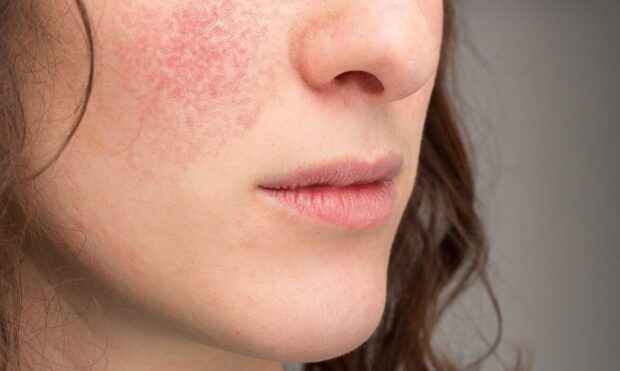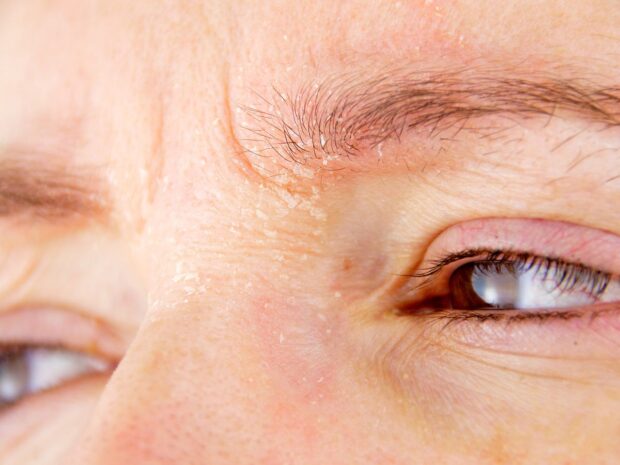Facial eczema, also known as atopic dermatitis, is a chronic skin condition that affects millions of people worldwide. It is characterized by red, itchy, and dry patches of skin that can appear anywhere on the face, including the forehead, cheeks, and chin. While there is no cure for facial eczema, there are several effective treatment strategies that can help manage the symptoms.
Causes of Facial Eczema

The exact cause of facial eczema is not fully understood, but it is believed to be a combination of genetic and environmental factors. People with a family history of eczema, allergies, or asthma are more likely to develop it. Other triggers may include irritants such as harsh soaps, detergents, and fragrances, as well as allergens such as pollen, dust mites, and pet dander.
Symptoms of Facial Eczema

The symptoms can vary from person to person and may include:
– Red, dry, and itchy patches of skin on the face.
– Swelling and inflammation of the affected area.
– Crusting and oozing of the skin.
– Thickening and darkening of the skin in the affected area.
– Sensitive skin that may be easily irritated by certain products or substances.
Effective Treatment Strategies for Facial Eczema

While there is no cure for facial eczema, there are several effective treatment strategies that can help manage the symptoms and improve the overall quality of life. These include:
– Eczema Creams: These creams contain natural ingredients like colloidal oatmeal, ceramides, and jojoba oil that can help soothe and hydrate the skin. It is essential to choose an eczema cream that is specifically formulated for facial eczema and to use it as directed by a healthcare provider.
– Moisturizing the Skin: Using a gentle moisturizer that contains natural ingredients like aloe vera, shea butter, and coconut oil can help soothe and hydrate the skin. It is essential to apply the moisturizer immediately after a shower or bath to lock in the moisture.
– Avoiding Triggers: Identifying and avoiding triggers that can exacerbate facial eczema is essential. This may include avoiding harsh soaps and detergents, wearing protective clothing, and avoiding allergens such as pollen, dust mites, and pet dander.
– Topical Steroids: Creams that contain steroids help reduce inflammation and itching in the affected area. However, prolonged use of topical steroids can lead to side effects such as thinning of the skin, so it is essential to use them only as directed by a healthcare provider.
– Phototherapy: Phototherapy involves exposing the affected area of the skin to ultraviolet light. This treatment can help reduce inflammation and itching in the affected area. However, it is essential to undergo this treatment under the guidance of a healthcare provider.
In conclusion, facial eczema is a chronic skin condition that can be challenging to manage. While there is no cure for facial eczema, there are several effective treatment strategies that can help manage the symptoms and improve the overall quality of life. By following these treatment strategies, people with facial eczema can lead a healthy and comfortable life.




























